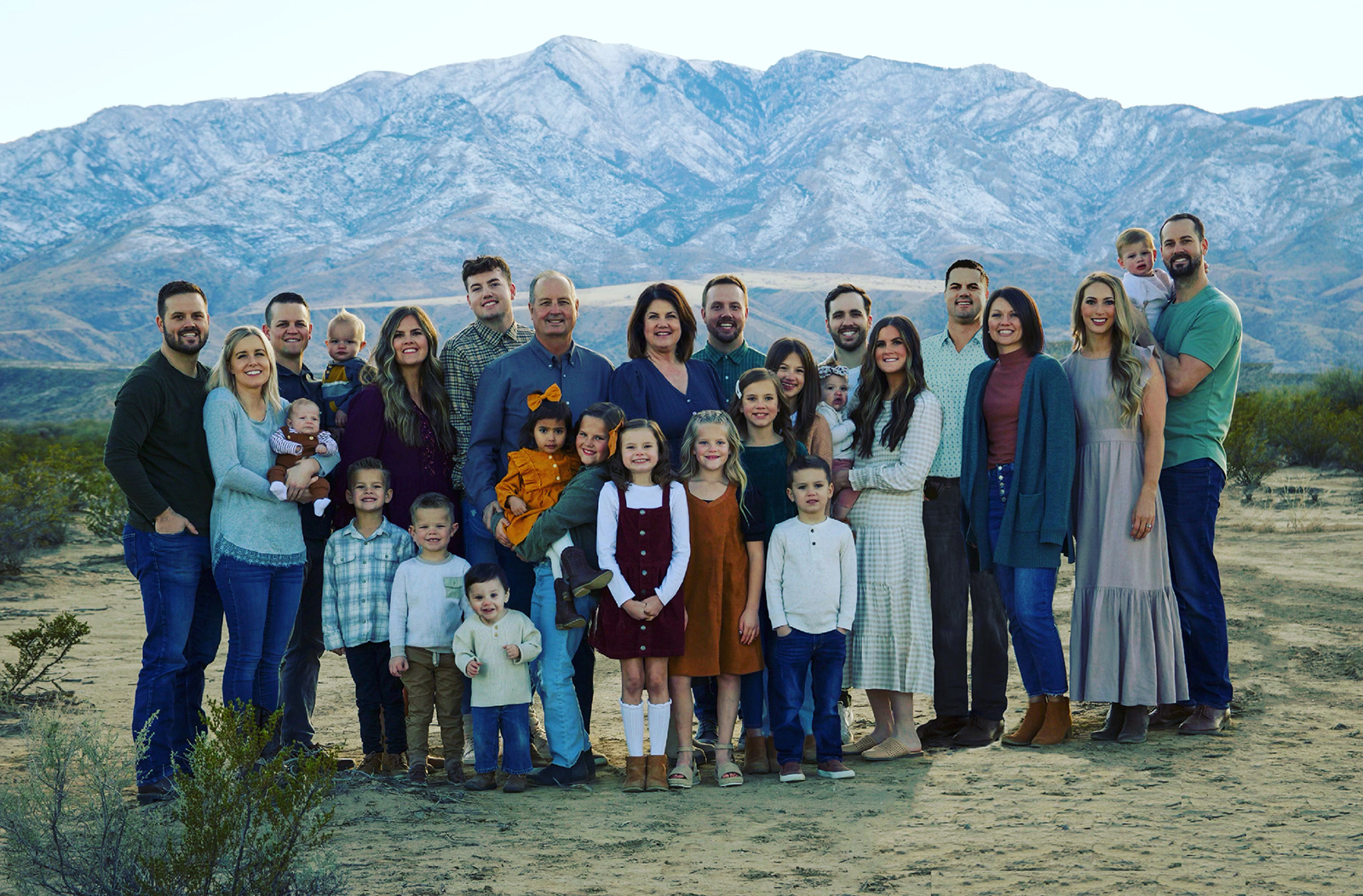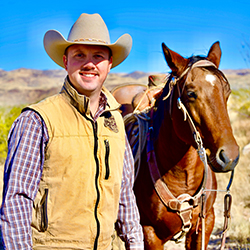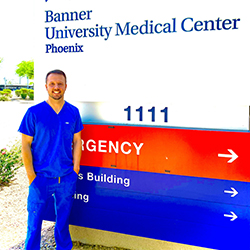
Match Day Profile: Dallin Stevens

Every third Friday in March, fourth-year medical students across the United States learn where the next chapter in their careers will be written. Match Day is the day when the National Resident Matching Program releases results to applicants in sealed envelopes, revealing where they will spend the next several years in residency, training in their chosen specialty. After years of preparation and study, it is a long-awaited and well-deserved day to celebrate. The University of Arizona College of Medicine – Phoenix is profiling several students for Match Day 2023.
Meet Dallin Stevens

Stevens, who graduated from Arizona State University, credits his supportive family with helping to navigate the rigors of medical school. Without their words of encouragement, the journey would have proved much more difficult.
Path Toward Medicine
What was the spark that led you to become a physician?
As a teenager, I would help a close family friend, and the only general surgeon for miles, on his cattle ranch. A trauma surgeon by training, he was my first introduction to what a career in medicine could look like. I would listen to his stories and was able to recognize his effect on our community. It was through these interactions that I knew I wanted to be a physician.
Choosing a Specialty
Do you have a specialty? What is it and why did it interest you, or what led you to it?
Fortunately, I had the opportunity to rotate in the emergency department of my hometown as a third-year medical student. This was literally my dream job. I fell in love with helping people during their most dire circumstances. I also fell in love with the people of the emergency department — the techs, nurses, physicians and other staff. I had in fact “found my people.” I look forward to pursuing a career where I can be the first line of comfort and clinical expertise for someone in need.
What’s Next
Post-Match Day, what are your goals moving forward?
I have witnessed first-hand the desperate need for rural physicians. After matching and completing residency, I desire to stay in Arizona and serve these communities. I would love to return home and practice as a rural emergency medicine physician to provide care to the community that means so much to me.
The College of Medicine – Phoenix Culture
What will you miss most about the College of Medicine – Phoenix? Any advice for incoming medical students?

If I were talking to incoming students, I feel like I could offer advice on so many different things, although I am not sure how helpful it would be. All I will say is that medical school can be very difficult — to the point where, as you are in the middle of your training, it may not even seem worth it at times. But, by recalling the friendships it has helped build and the impact you are making, and will make, in the lives of your patients, you will remember that is 100% worth it.
About the College
Founded in 2007, the University of Arizona College of Medicine – Phoenix inspires and trains exemplary physicians, scientists and leaders to advance its core missions in education, research, clinical care and service to communities across Arizona. The college’s strength lies in our collaborations and partnerships with clinical affiliates, community organizations and industry sponsors. With our primary affiliate, Banner Health, we are recognized as the premier academic medical center in Phoenix. As an anchor institution of the Phoenix Bioscience Core, the college is home to signature research programs in neurosciences, cardiopulmonary diseases, immunology, informatics and metabolism. These focus areas uniquely position us to drive biomedical research and bolster economic development in the region.
As an urban institution with strong roots in rural and tribal health, the college has graduated more than 1,000 physicians and matriculates 130 students each year. Greater than 60% of matriculating students are from Arizona and many continue training at our GME sponsored residency programs, ultimately pursuing local academic and community-based opportunities. While our traditional four-year program continues to thrive, we will launch our recently approved accelerated three-year medical student curriculum with exclusive focus on primary care. This program is designed to further enhance workforce retention needs across Arizona.
The college has embarked on our strategic plan for 2025 to 2030. Learn more.